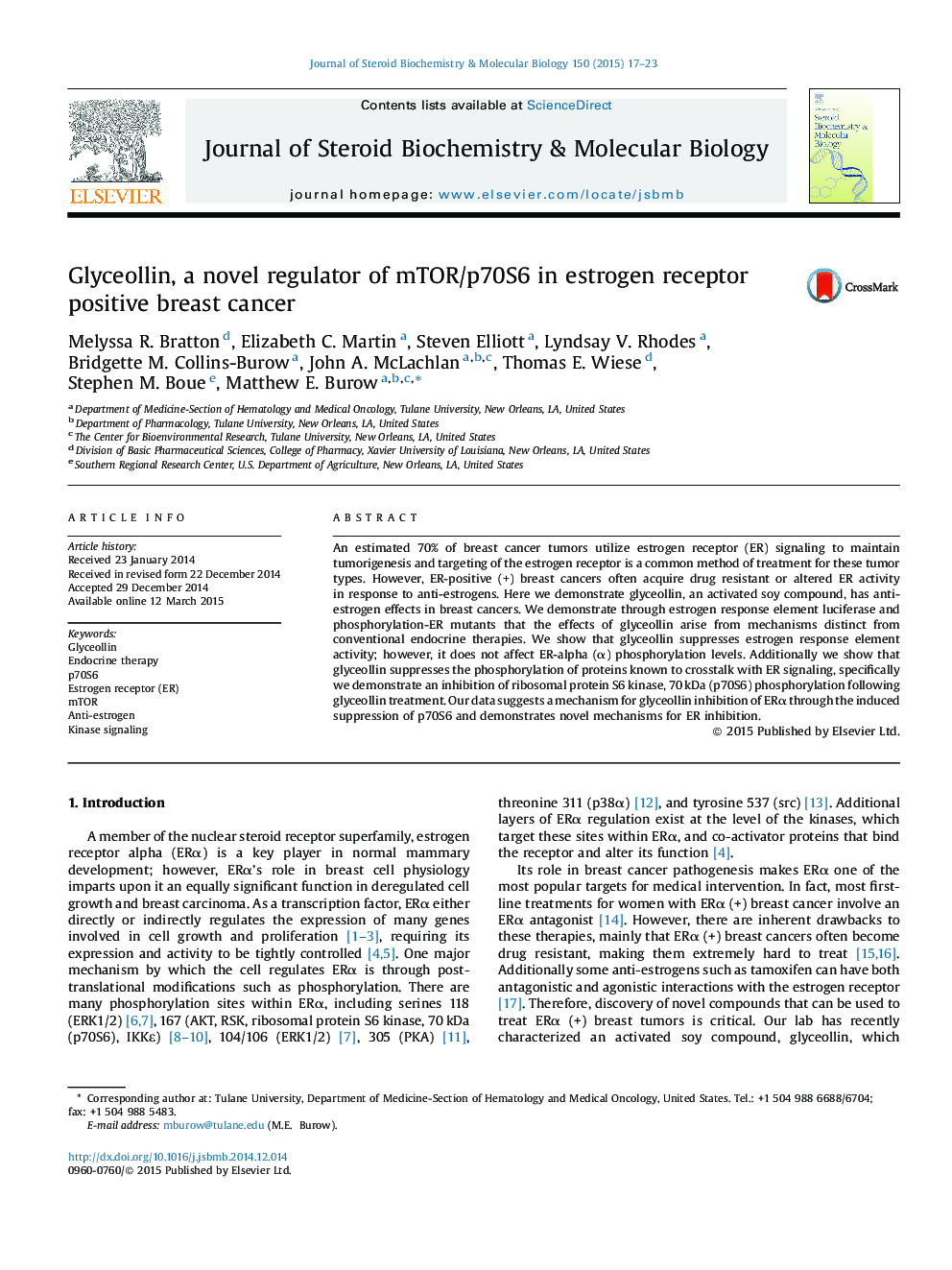| Article ID | Journal | Published Year | Pages | File Type |
|---|---|---|---|---|
| 8338156 | The Journal of Steroid Biochemistry and Molecular Biology | 2015 | 7 Pages |
Abstract
An estimated 70% of breast cancer tumors utilize estrogen receptor (ER) signaling to maintain tumorigenesis and targeting of the estrogen receptor is a common method of treatment for these tumor types. However, ER-positive (+) breast cancers often acquire drug resistant or altered ER activity in response to anti-estrogens. Here we demonstrate glyceollin, an activated soy compound, has anti-estrogen effects in breast cancers. We demonstrate through estrogen response element luciferase and phosphorylation-ER mutants that the effects of glyceollin arise from mechanisms distinct from conventional endocrine therapies. We show that glyceollin suppresses estrogen response element activity; however, it does not affect ER-alpha (α) phosphorylation levels. Additionally we show that glyceollin suppresses the phosphorylation of proteins known to crosstalk with ER signaling, specifically we demonstrate an inhibition of ribosomal protein S6 kinase, 70 kDa (p70S6) phosphorylation following glyceollin treatment. Our data suggests a mechanism for glyceollin inhibition of ERα through the induced suppression of p70S6 and demonstrates novel mechanisms for ER inhibition.
Related Topics
Life Sciences
Biochemistry, Genetics and Molecular Biology
Biochemistry
Authors
Melyssa R. Bratton, Elizabeth C. Martin, Steven Elliott, Lyndsay V. Rhodes, Bridgette M. Collins-Burow, John A. McLachlan, Thomas E. Wiese, Stephen M. Boue, Matthew E. Burow,
